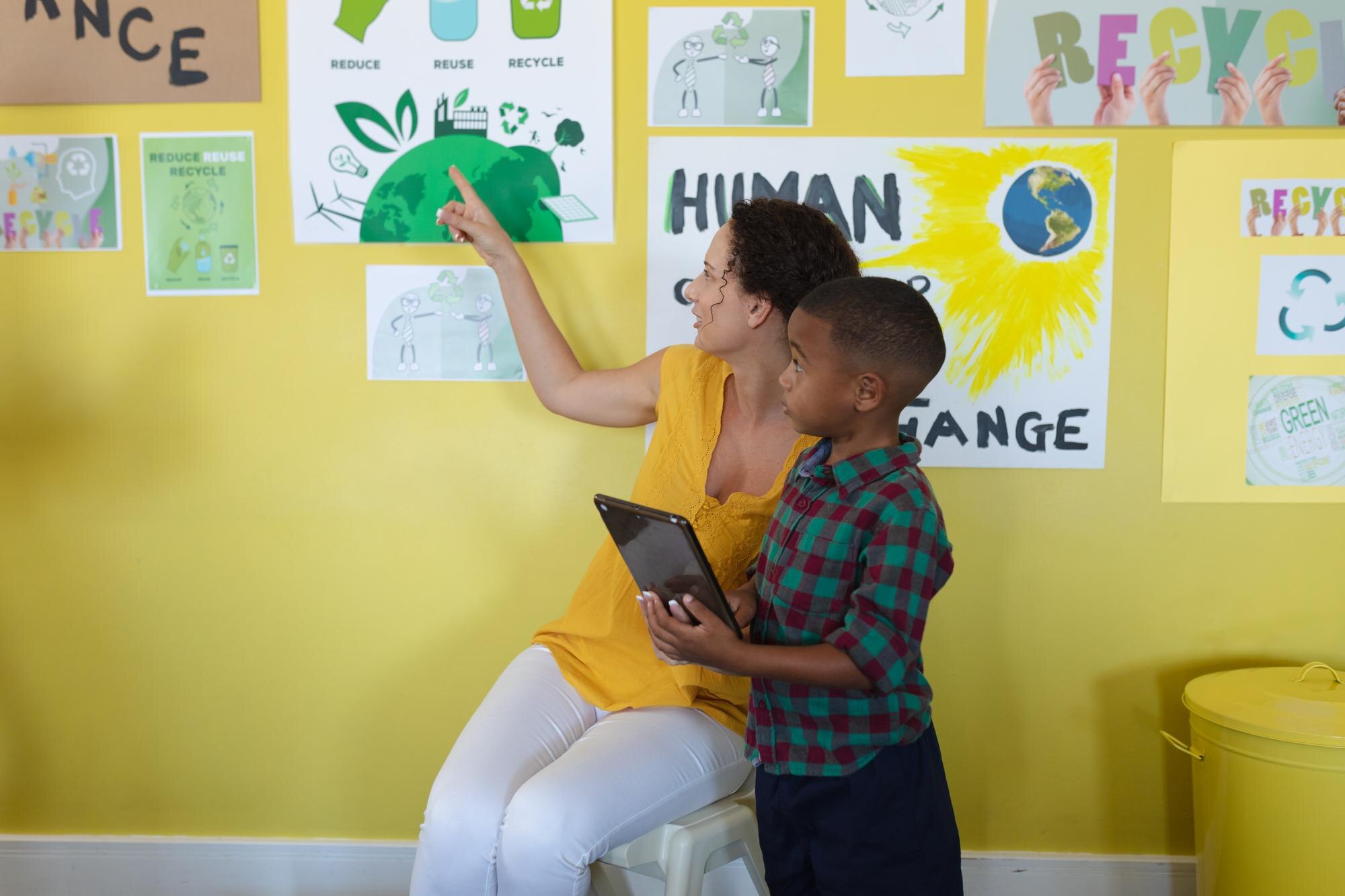
Happy diverse kids sitting at desk in classroom and talking with teacher, studying during lesson, woman explaining subject to pupils
Empowering Gifted Students: Strategies for Educators to Foster Resilience and Confidence
Gifted students often stand at the edge of brilliance, yet face unique emotional hurdles. As an educator, you see their potential, but how do you help them build resilience and confidence? Imagine equipping your students with the tools to thrive, both emotionally and academically. This isn’t just a dream; it’s a reality within reach. In this guide, you’ll uncover practical strategies to support these remarkable minds. Join VK Creative Circle’s community, where resources and workshops await to empower your gifted students. Let’s embark on this journey together. For more insights, explore strategies for building resilience in gifted students.
Building Resilience in Gifted Students

Resilience is a crucial trait for gifted students to flourish both academically and emotionally. It involves developing the ability to bounce back from challenges and adapt to new situations. Educators play a significant role in fostering resilience by creating supportive environments and encouraging healthy risk-taking. This section explores practical strategies to help gifted students develop this essential quality.
Creating a Supportive Environment
Creating a supportive environment for gifted students can significantly enhance their resilience. Start by fostering a classroom atmosphere where students feel safe to express themselves. This involves encouraging open dialogue and promoting diversity in thought and perspective.
Arrange regular check-ins to understand students’ emotional landscapes. This can be achieved through one-on-one meetings or group discussions where students share their experiences.
Incorporate flexible learning opportunities to cater to different learning styles and paces. This flexibility can help students to feel more in control and less pressured, promoting a sense of security.
Research suggests that a supportive environment is linked to enhanced student resilience. Explore more about the importance of support in educational settings on this comprehensive guide.
Encouraging Healthy Risk-Taking
Gifted students often shy away from risks due to fear of failure. Encouraging healthy risk-taking helps them grow and develop resilience.
Start small: Introduce activities that require students to step slightly out of their comfort zones. This could be as simple as solving more challenging problems or participating in debates.
Normalize failure: Discuss famous figures who failed before succeeding. Highlight the learning experiences that come from setbacks.
Encourage students to set personal challenges—tasks that are just outside their current abilities. This encourages growth and builds confidence in their capabilities.
For more strategies on fostering risk-taking, visit this insightful article on building resilience in gifted students.
Boosting Confidence Through Validation

Validation is essential in boosting confidence among gifted students. Recognizing their efforts and achievements, no matter how small, can significantly impact their self-esteem. This section covers ways to celebrate small wins and provide constructive feedback.
Celebrating Small Wins
Recognizing and celebrating small achievements boosts confidence. Celebrating small wins acknowledges effort, not just the end result.
Create a recognition wall: Display students’ work and achievements on a bulletin board. This visual reminder can motivate students and foster a sense of pride.
Implement a rewards system: Offer small rewards for milestones reached. This could be a sticker system or a class treat.
Encourage students to maintain personal journals where they note their daily achievements. Reflecting on these can boost morale and motivation.
Read more about celebrating small victories in education on this resourceful blog.
Providing Constructive Feedback
Providing feedback is a powerful tool in education. Constructive feedback helps students understand their strengths and areas for improvement.
Be specific: Instead of saying “Good job,” specify what was done well and why. This helps students repeat positive behavior.
Balance positive and negative feedback: Ensure that negative feedback is accompanied by suggestions for improvement. This approach keeps students motivated without feeling discouraged.
Use a “feedback sandwich” approach: Start with a positive comment, follow with a suggestion for improvement, and end with encouragement.
Explore more methods of providing feedback effectively in the National Association for Gifted Children.
Practical Strategies for Emotional Support

Emotional support is vital for the well-being of gifted students. This section provides practical strategies, including mindfulness techniques and fostering open communication, to help students manage their emotions effectively.
Mindfulness Techniques for Students
Mindfulness helps students develop emotional awareness and resilience. Mindfulness techniques can be easily integrated into the classroom.
Start with short sessions: Introduce five-minute breathing exercises at the start of each class. This sets a calm tone and helps students focus.
Incorporate mindful journaling: Encourage students to write about their thoughts and feelings. This practice promotes self-reflection and emotional understanding.
Guide students in body scans—a mindfulness exercise that involves focusing on different body parts to relax physically and mentally.
Check out this post on strategies for parenting gifted children to understand more about mindfulness.
Fostering Open Communication
Open communication is key to supporting gifted students emotionally. Fostering open dialogue allows students to express their thoughts and concerns freely.
Create a safe space: Dedicate time for students to share their feelings without judgment. This can be through group sessions or one-on-one meetings.
Encourage active listening: Teach students to listen empathetically to their peers. This practice fosters mutual respect and understanding.
Facilitate peer support: Encourage students to form study groups or support circles. Peer connections can provide comfort and understanding.
For more insights on fostering communication, visit this helpful guide.
🌟✨📚

A certified Heal Your Life® Coach with 20+ years in education and emotional development. Supports gifted teens in navigating anxiety, perfectionism, and identity challenges, while equipping parents with practical tools for lasting transformation. Sessions blend emotional healing, mindset mastery, and strategic empowerment.



